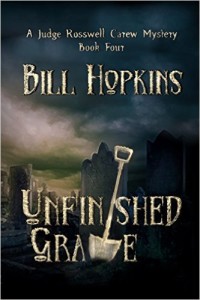by Bill Hopkins, @JudgeHopkins
How many times have you read in an otherwise excellent book that a character “spoke with a heavy accent” or something similar? Too many, is my guess. Everyone (you, me, everyone you know) speaks with a heavy accent. What determines a heavy accent is who is listening! If the person listening speaks the same as you, then you won’t notice an accent. If the person listening has never heard anyone speak like you, then YOU have a heavy accent.
Let me give you an example, using my accent, which is upland south.
https://commons.wikimedia.org/wiki/File:Upland-South-map.jpg
The upland south accent can be heard in the hills and mountains of the American South and, in fact, in most of Southern Illinois and Southern Indiana and Ohio. Think of the way The Beverly Hillbillies spoke. (Lowland South, on the other hand, is what Scarlett O’Hara spoke.)
If I want a character to speak the way I do (i.e., like a hillbilly), I’ll write something like:
John said, “I washed up in the creek out yonder.”
I could hear the intrusive r in “warsh” and his hillbilly roots when he said “crick.”
That’s about all I have to say about John’s accent. There’s no use in transcribing it or trying to make it look on paper what it sounds like to your ear.
Nann Dunne, http://www.justaboutwrite.com/A_Archive_Uses-Abuses-Dialect.html, gives us this example of a horribly written dialect from Uncle Tom’s Cabin: “S’pose we must be resigned; but oh Lord! how ken I? If I know’d anything whar you’s goin’, or how they’d sarve you! Missis says she’ll try and ‘deem ye, in a year or two; but Lor! nobody never comes up that goes down thar! They kills ‘em! I’ve hearn ‘em tell how dey works ‘em up on dem ar plantations.”
That’s tortured English or some other kind of language that I’ve never heard of. But let me give a stab at making it more intelligible.
“Suppose we must be resigned. But, oh Lord! How can I? If I knowed anything where you’s going, or how they’d serve you! Missis says she’ll try and deem ye, in a year or two. But, oh Lord! Nobody never comes up that goes down that river! They kills ‘em! I’ve heard ‘em tell how they works ‘em up on them there plantations.”
Still not great literature, but we know for sure that we’re not sitting in Queen of England’s drawing room discussing crumpets. All I did was use a bit of bad grammar (knowed, you’s, never, kills) and one substandard abbreviation (‘em). It’s a lot easier to read than the original and you know what it means, for the most part.
You know that the speaker talks in a way we’d call “dialect” or “accented” by (mostly) the grammar they use. For example, my mother was a stickler for correct grammar and proper spelling. When I was a kid and said brung in front of her, even her Ozark hillbilly raising couldn’t handle it. I said, “If it’s sing, sang, sung, then why can’t it be bring, brang, brung?”
She never did answer me to my satisfaction. Or maybe she thought that “vagaries of grammar” was something I couldn’t understand at my tender age.
Mignon Fogarty (Grammar Girl) says that regionalisms also contribute to making a character sound like (in your head) that they’re speaking in a dialect.
http://www.quickanddirtytips.com/education/grammar/regionalisms
What do you call that bubbly drink? Soda? Pop? Soft drink? I remember when I was a kid in Southeast Missouri, we would say, “What kind of Coke do you want?” And we’d answer, “7-Up” or “Coke” or whatever.
Likewise, do you ride on a teeter-totter or see-saw? What do you put on top of a cup? A lid? A cover? Do you drink from a water fountain or a bubbler?
When we use regionalisms or dialect, the way we talk changes the language. American English has no good way to indicate a plural you so we have come up with lots of different ways to say it. It seems (to me) that y’all is winning out, even in the North. It’s a handy word and you know immediately what it means.
With the influx of aliens from all over the globe…Wait. Did that offend you when I said aliens? All it means is a person who belongs to a foreign nation. Canadians are alien in the United States. Americans are aliens in Canada. The word is not bad but some people are offended by its use. Likewise, the word refugee (which is simply a person who has been forced to leave their country in order to escape war, persecution, or natural disaster) offends some people. Right or wrong, the people who pronounce these dictates may change the language for good or bad. Time will tell.
There no such thing as a “bad” word. Words change almost daily.
I could go on and on with this, one of my favorite subjects. Just remember that if you want to make your character speak in a dialect or with an accent, don’t try to be a court reporter. Instead, give us a hint or two and let our minds do the rest!
***
Note: My first book, Courting Murder is now free as an ebook; all ereaders are supported.
Bill is retired after beginning his legal career in 1971 and serving as a private attorney, prosecuting attorney, an administrative law judge, and a trial court judge, all in Missouri. His poems, short stories, and non-fiction have appeared in many different publications. He’s had several short plays produced. Bill is a member of Mystery Writers of America, Dramatists Guild, Horror Writers Association, Missouri Writers Guild, SEMO Writers Guild, Heartland Writers Guild, Romance Writers of America, and Sisters In Crime. Bill is also a photographer who has sold work in the United States, Canada, and Europe. He and his wife, Sharon (a mortgage banker who is also a published writer), live in Marble Hill, Missouri, with their dog and cat. Besides writing, Bill and Sharon are involved in collecting and restoring Camaros. COURTING MURDER was his first novel and his second novel RIVER MOURN won first place in the Missouri Writers’ Guild Show-Me Best Book Awards in 2014.
prosecuting attorney, an administrative law judge, and a trial court judge, all in Missouri. His poems, short stories, and non-fiction have appeared in many different publications. He’s had several short plays produced. Bill is a member of Mystery Writers of America, Dramatists Guild, Horror Writers Association, Missouri Writers Guild, SEMO Writers Guild, Heartland Writers Guild, Romance Writers of America, and Sisters In Crime. Bill is also a photographer who has sold work in the United States, Canada, and Europe. He and his wife, Sharon (a mortgage banker who is also a published writer), live in Marble Hill, Missouri, with their dog and cat. Besides writing, Bill and Sharon are involved in collecting and restoring Camaros. COURTING MURDER was his first novel and his second novel RIVER MOURN won first place in the Missouri Writers’ Guild Show-Me Best Book Awards in 2014.
Thanks for the advice! <3
Thank you for reading!
http://www.deadlyduo.net/
Thanks for hosting Bill, Elizabeth.
Bill, I think dialect is absolutely fascinating. As a linguist, I’ve looked at ways people speak and how that makes them unique for a long time. You make a very strong point here that there are ways to make a character distinctive through dialect without making that dialect too difficult for people who don’t speak it. Subtle touches are enough. And dialect can place a story in important ways, too. As you say, if you call that fizzy drink pop, soda, or coke, this tells the reader something about the location of your story. And readers from wherever your story is set will find it all the more authentic.
Your thoughts are perceptive.
http://www.deadlyduo.net/
Using regional words is easier on the reader. (Like the difference between pop, soda, and Coke. Here it would be Pepsi.) The actual dialect itself is often too much.
The one what brung ya – yeah, I hear that one a lot around here…
Thanks for reading1
http://www.deadlyduo.net/
Thanks for posting today, Bill! Great tips here for avoiding dialect fatigue in readers. :)
Thank you! I always appreciate writers who post blog entries for fellow writers!
http://www.deadlyduo.net/